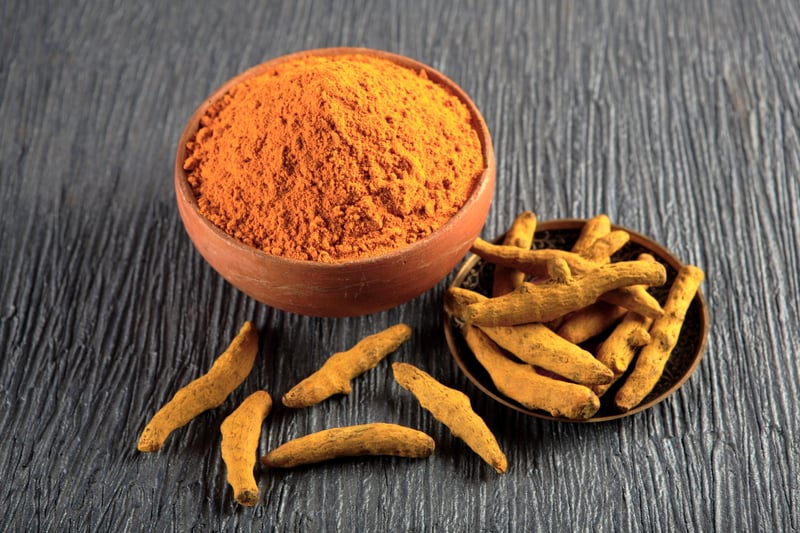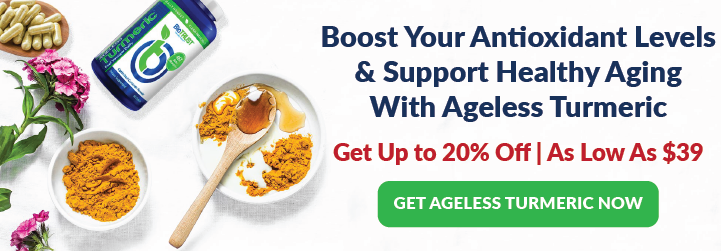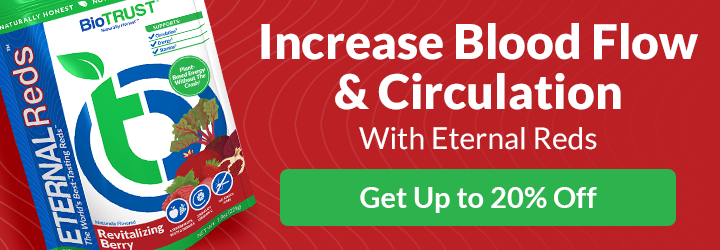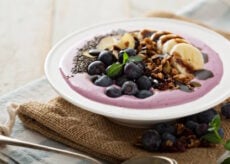What Does Turmeric Do for Your Body?

Over the past few years, the popularity of turmeric has grown exponentially. It has not only gained attention in coffee shops and social media, but turmeric has caught the eye of many folks looking for some full-body health benefits. And while you might not have jumped on the turmeric bandwagon just yet, it’s likely you are already acquainted with this golden spice.
What is Turmeric?
Turmeric comes from the root of the Curcuma longa plant, which is a perennial in the ginger family. It is native to the Indian subcontinent and Southeast Asia and is used especially heavily in Indian cuisine.
One of the most striking things about turmeric is the color, which gives mustard and curries their vibrant coloring. In fact, a number of recipes include a dash of turmeric just for its visual effect.
If you haven’t tried turmeric on its own, the turmeric root is quite bitter, but it has an almost citrusy taste. Turmeric powder, on the other hand, is often described as tasting earthy and bitter (even more bitter than the turmeric root), with a bit of peppery flavor, which is why it’s often combined with sweet or other robust flavors. You can find turmeric added to foods like coffee, smoothies, soups, muffins, rice, veggies, or proteins like chicken, tofu, and eggs.
Benefits of Turmeric
Aside from being a great addition to foods needing that golden hue, turmeric appears to have anti-inflammatory properties that may benefit your health due to its active ingredient, the curcuminoid curcumin. Curcuminoids are active polyphenolic pigments. With extensive research to back it up, curcumin may have extremely beneficial effects on the body.
One of the biggest reasons to consider supplementing the diet with turmeric or, more specifically, curcumin is because it appears to serve as a powerful antioxidant. Not only may it help block free radicals directly, but it may also help stimulate the body’s own antioxidant defenses by boosting the activity of its own antioxidant enzymes. 1
Additionally, turmeric is highly regarded for its potential to promote a healthy inflammatory response. This appears to be because curcumin may help target specific biomarkers associated with inflammation.
Along these lines, curcumin has been shown to help target several pro-inflammatory mediators, including enzymes, transcription factors, cytokines, signal transducers, and more. 2
Through these anti-inflammatory benefits, turmeric is believed to assist the body in supporting joint health and potentially helping reduce pain and discomfort as well as increasing ease of movement.
Studies have also shown the compounds in turmeric may help support brain health and cognitive function. This is because curcumin may help increase BDNF (brain-derived neurotrophic factor), a type of growth hormone. 3,4 BDNF aids in driving neurons to form new connections and multiply, thus supporting cognitive function, mood, and mental health.
Turmeric may even lead to improvements in endothelial function, which is a major player in heart health. Endothelial cells release substances that “control vascular relaxation and contraction as well as enzymes that control blood clotting, immune function, and platelet adhesion.” Studies have shown curcumin may improve the age-related decline in endothelial function. 5 Additionally, curcumin may help reduce oxidative stress resulting in endothelial dysfunction. 6
Historically, turmeric has also been known for its detoxification properties by enhancing the liver’s filtration system. Chinese traditional medicine has long used turmeric to cleanse and heal the body and is used to address issues with the liver and gallbladder.
This ancient use has since been supported by research, which has shown turmeric may help increase the production of vital enzymes that are responsible for detoxifying our blood that goes to the liver by breaking down toxins. Further, it has been found that turmeric can significantly reduce lipid peroxidase, which in turn helps protect the liver from injury. 7
Finally, a lesser-known effect of turmeric is its skin-boosting benefits. Turmeric’s antioxidant and anti-inflammatory properties may help revitalize and boost skin radiance, brightening the skin by promoting skin health. 8 Likewise, turmeric’s antioxidant compounds may significantly relieve sun damage because its antioxidant activity may prevent free radicals like pollution and UV rays from affecting skin elasticity. 9
Despite these benefits, curcumin makes up only about three percent of turmeric. 10 Beyond this, it is known that curcumin has poor absorption, biodistribution, metabolism, and bioavailability in the body. 11 Since this is a recognized issue of turmeric and curcumin, certain strategies have been adapted to promote greater benefits.
Getting the Most Out of Turmeric
One of the most common techniques is to add black pepper to curcumin products since bioperine, a compound in black pepper, has been shown to help increase bioavailability. 12 However, researchers suggest that even with black pepper, the absorption of curcumin in the body may not be as much as originally hoped. 13 Thus, we may still not be able to enjoy all the benefits these compounds may provide.
Another technique is to consume curcumin with heart-healthy fats like oils, avocado, nuts, and seeds. This is because curcumin is fat-soluble, which means it breaks down and dissolves in fat or oil.
Regardless of these techniques, cooking with turmeric doesn’t produce much of a health boost. That’s why some people choose to use supplements such as BioTRUST’s Ageless Turmeric.
Nevertheless, the effects of turmeric, like other food-based components, can be profoundly influenced by overall dietary and lifestyle patterns. So, when it comes to boosting the benefits of turmeric, supplementation is best paired with healthy habits.
This is because the form of Turmeric used in Ageless Turmeric can increase your body’s absorption of curcumin by up to 46 TIMES.
That means that Ageless Turmeric provides powerful benefits, including premium support for:
- Healthy Aging
- Healthy Inflammation
- Detoxification
- Joint Health
- Skin Health
- Metabolic Health
- Recovery from Exercise







